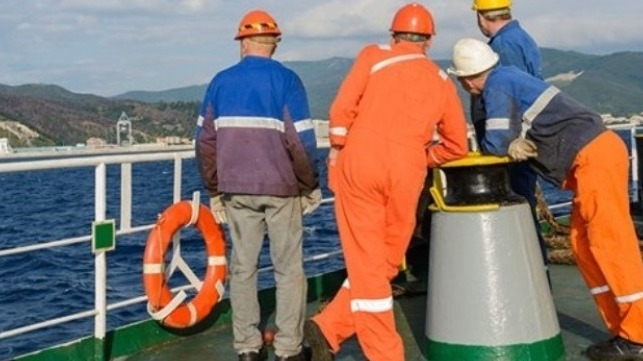Crewing Costs are Rising due to Vaccine Delays and Travel Restrictions

For more than a year, the major seafarer unions, shipping lines, and organizations including the International Maritime Organization have been warning of the problems being caused in the shipping industry by COVID-19 related travel restrictions and the failure to recognize seafarers as essential workers. Renewed travel restrictions resulting from the new variations of the coronavirus, combined with delays in obtaining vaccinations for seafarers, are likely to further add to the problems as carriers work to manage growing demand and increased shipments as the global economies recover.
According to crewing agency Danica Crewing Services, costs are rising in the crewing sector and crew shortages are beginning to be seen as COVID-19 travel restrictions and vaccination delays are increasingly impacting the availability of trained seafarers. Danica warns that continued restrictions and vaccination delays are causing crew shortages and rising wages that are likely to get worse during the coming months.
Noting recent changes in the availability of crew members, Henrik Jensen, Danica Managing Director, said that the Eastern European crewing market is under extreme pressure as companies turn to countries including the Ukraine and Russia to replace officers and seafarers unable to travel from other parts of the world, including India and the Philippines. Crew change hubs restored restrictions on the movement of seafarers this spring as India reported a dramatic surge in cases.
As the Northern Hemisphere heads into the summer holiday period, Danica warns that the situation could become more difficult with shipping companies looking to countries in these areas as replacement sources for seafarers unable to travel from India and other southeast Asian countries. Danica highlights that the summer months in Eastern Europe are regarded as a low season in terms of crew availability due to family commitments.
“The unfortunate situation in India and the travel restrictions in the Philippines have caused many shipping companies to turn to Eastern Europe for crews. This has put the seafarer employment market in Eastern Europe under an unprecedented pressure with a high surplus of vacancies,” says Jensen. “On top of this, we have a new dimension created by the desire for vaccination. Many seafarers want to be vaccinated before returning to sea.”
Availability of COVID-19 vaccines and the time needed to allow immunity to develop are key issues impacting the number of individuals available, highlights Danica. Seafarers are also being forced to wait until they have had their second vaccination before returning to sea.
“Not unexpectedly, as in freight markets, when there is a shortage, the cost goes up,” says Jansen. “We now see shipping companies offering salaries 10 to 20 percent higher than the average market levels or providing a high joining bonus.”

that matters most
Get the latest maritime news delivered to your inbox daily.
In countries including Russia, where the vaccines are generally available, it is good news for seafarers. However, in other countries, such as Ukraine, the demand for vaccinations outstrips supply resulting in a longer waiting time. As a result, Danica says it is finding that seafarers, especially those who do not sign up immediately as their leave begins, are waiting 4 to 6 weeks to be vaccinated. Once they get their first injection, they have to wait a further 8 to 10 weeks for the second one, and then an additional 2 to 3 weeks for their immunity to be fully effective.
“This means many seafarers are now out of the loop for 16 to 20 weeks, which is about double their usual leave period and is compounding the global shortage of seafarers,” says Jansen. He is urging seafaring nations to understand the critical need for crew, calling for seafarers to be designated as essential workers and given their vaccinations as soon as possible. He also notes that the use of the one-shot version of the vaccine for seafarers would also help to alleviate the current shortage of individuals qualified to travel and work aboard the ships.
